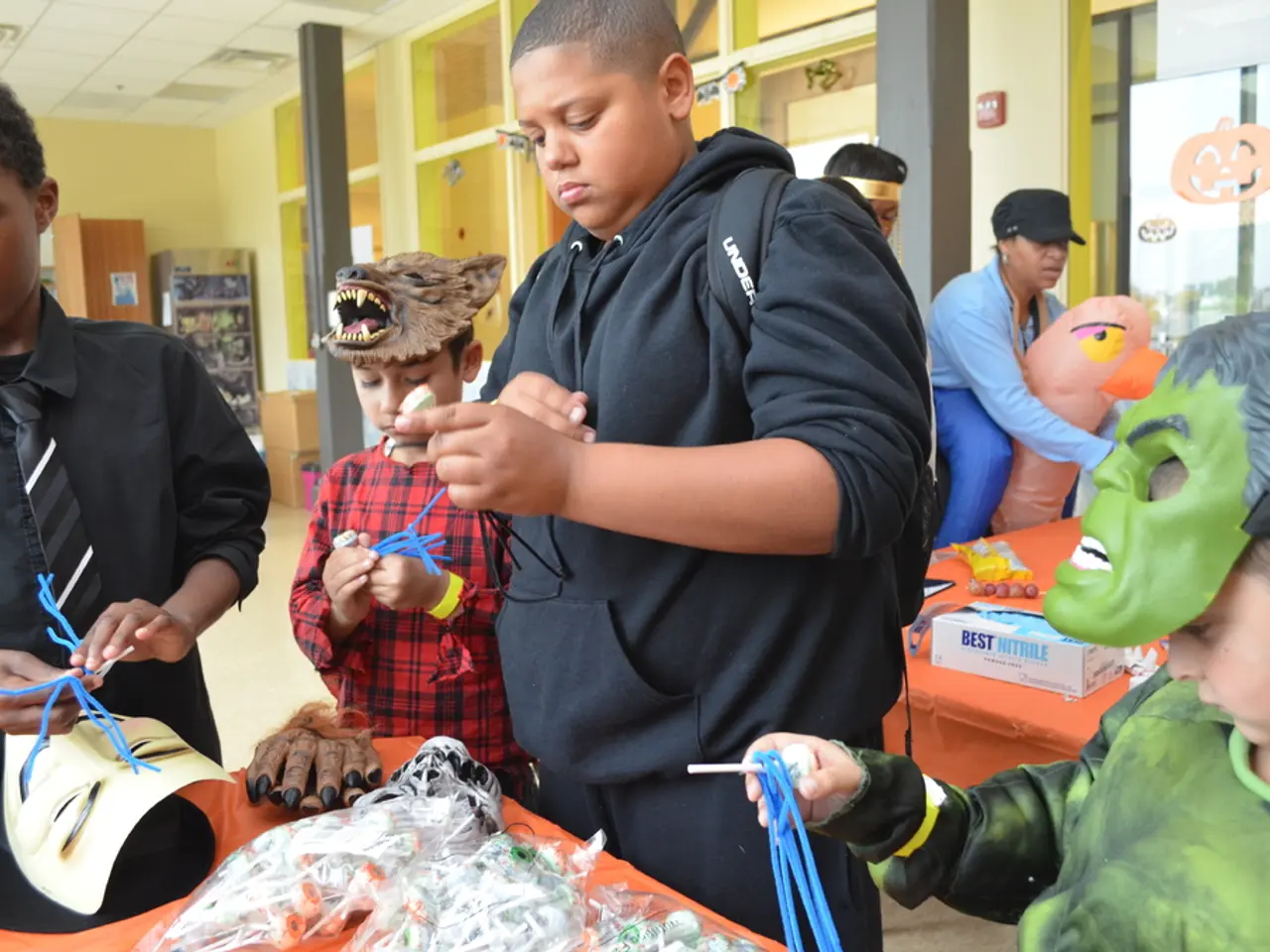Monitoring Digital Interactions: Strategies for Child Online Safety
In today's digital age, it's crucial for parents and guardians to be aware of the risks that come with children's online activities. One such risk is cybergrooming, a concerning behaviour that can potentially put children at risk. The Federal Criminal Police Office (BKA) provides comprehensive information on cybergrooming on their website, helping parents and guardians to understand this issue better.
So, what is cybergrooming? It's the act where perpetrators use the internet to establish relationships with children with the intention of exploiting them. The warning sign for cybergrooming is when perpetrators persuade victims to exchange private messages via messaging services.
Experts advise against constant surveillance or an internet ban, suggesting instead that parents build trust and strengthen media literacy. Creating a trusting atmosphere is key so that children feel comfortable talking about their online experiences. This open dialogue allows parents to monitor their children's online activities effectively without invading their privacy.
Perpetrators may try to persuade victims to send compromising photos or videos, possibly with money or gifts. In the worst case, the perpetrator may pressure the victim into a personal meeting. If such situations arise, it's essential to contact the local police immediately. Parents should document the chat history and ask their local police how to transmit secured evidence.
Victims of cybergrooming may need psychological support. The primary victim counseling centres in Germany include the "Nummer gegen Kummer" (Phone Number Against Worries) with the hotline 116 111 for children and 0800 111 0 550 for parents. Specialized organisations such as Weißer Ring (contact via their website or telephone 116 006) also provide support for victims of crime, including cybercrime. Local police advisory services like Polizei-Beratung.de offer information and support resources on cybergrooming cases.
To help children navigate the internet safely, the Internet-ABC association provides extensive educational materials and information for teachers, parents, and children. These resources can equip children with the knowledge they need to identify potential risks and respond appropriately.
In conclusion, while the internet offers countless opportunities for learning and socialising, it also presents risks, particularly for children. By understanding cybergrooming, building trust with children, and seeking help when needed, parents and guardians can help protect their children online.
Read also:
- visionary women of WearCheck spearheading technological advancements and catalyzing transformations
- Recognition of Exceptional Patient Care: Top Staff Honored by Medical Center Board
- A continuous command instructing an entity to halts all actions, repeated numerous times.
- Oxidative Stress in Sperm Abnormalities: Impact of Reactive Oxygen Species (ROS) on Sperm Harm








